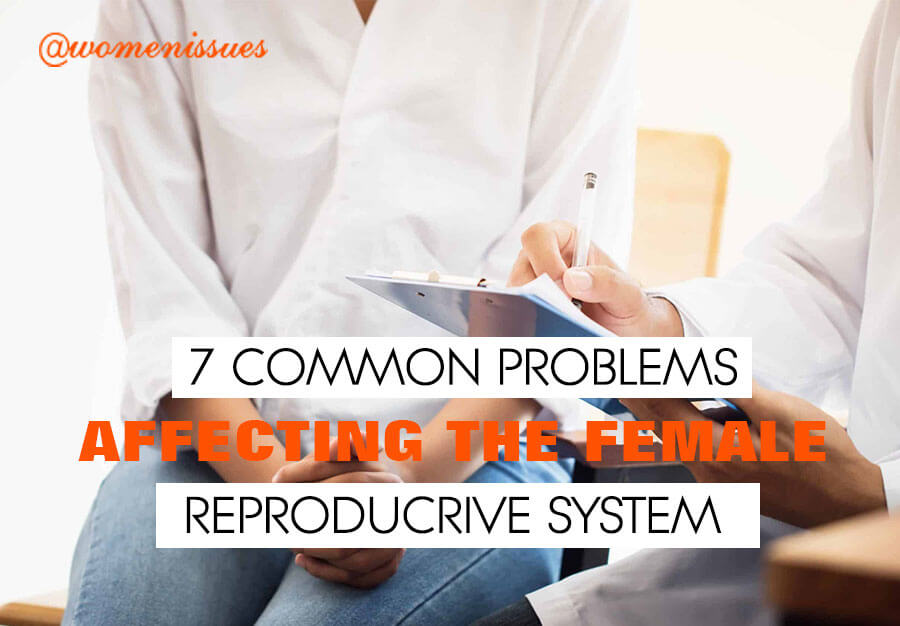The female reproductive system is the collection of both the outer and inner organs. The female reproductive system, to name a few is made up of the vagina, the uterus, ovaries, fallopian tubes, etc. Here are seven common problems that may be affecting your reproductive system.
1. Endometriosis
Endometriosis is a common issue for lots of women that affects the uterus. Endometriosis occurs when the tissue that normally lines the uterus grows somewhere else other than the uterus lining like on the bladder, on the ovaries and on the bowels as well. This growth will certainly make you feel pain in your pelvic area, abdominal area, and/or your lower back. The signs and symptoms of endometriosis are excruciating pain during your periods, heavy periods and can cause inability to conceive.
2. Uterine Fibroids
A fibroid is made from muscle cells as well as various other cells that grow around the wall surface of your uterus. There is currently no actual known root cause of uterine fibroids but African and obese women are at the highest risk. The signs and symptoms include lower back pain, pain during sex, painful periods, heavy periods or bleeding in between your regular periods, constant urination, and a feeling of fullness in your lower abdomen. Uterine fibroids can commonly cause infertility or miscarriage in some women. With regards to noncancerous growths in women of childbearing age, uterine fibroids are one of the most common.
3. Polycystic Ovary Syndrome (PCOS)
When your ovaries produce a lot more male hormones than the regular levels, you might have PCOS. The most common signs and symptoms include pelvic pain, irregular periods, excess hair growth on the body and face, headaches, darkening of the skin and acne. Cysts can develop in your ovaries interfering with your ability to conceive. You might also have issues with thinning of hair, rapid weight gain, oily skin, dandruff, sleep apnea, depression, and anxiety. If you have actually been diagnosed with PCOS, you are also at a greater risk of developing diabetes mellitus as well as cardiovascular disease. It can also enhance the risk of endometrial cancer.
4. Primary Ovarian Insufficiency (POI)
POI is also known as premature ovarian failure which occurs when ovaries don’t release eggs normally or produce the normal amount of estrogen before 40years of age. Women with POI might stop having periods or get irregular ones due to ovaries not working as they should. They also suffer from painful sex, decreased sexual desire, cranky moods, night sweats, hot flashes, vaginal dryness, dry eyes, and difficulty with concentration. The symptoms mirror those of menopause but they are two different issues. Women who suffer from POI might experience difficulty with conceiving and with low levels of estrogen, there is an increased risk of heart problems, osteoporosis, depression and anxiety.
5. Pelvic Floor Prolapse
The pelvic floor relapse is primarily found in women who have given birth or who have had some surgical treatment before. It is a disorder that occurs when different organs found in the pelvic floor area like the uterus, urethra, vagina, rectum, or bladder fall as the result of the overstretched and weak muscles of the pelvic floor that support them. Pelvic floor prolapse can be treated with exercising, adjustments in the diet plan, with the help of a pessary that sustains the organs in their correct position, or with the help of surgical procedures in serious cases.
6. Bacterial Vaginosis
Bacterial vaginosis is a type of vaginal inflammation triggered by the overgrowth of microorganisms that are normally found in the vagina which upsets the natural balance. Women that are in their reproductive years are more likely to be affected however it can affect women of any age. The signs and symptoms are vaginal itchings, burning during peeing or vaginal fishy odor. It can be caused by douching, multiple sex partners, or a lack of enough good bacteria over bad ones in the vagina. Bacterial vaginosis might lead to pelvic inflammatory disease or being susceptible to STIs.
7. Gynecologic Cancer
Gynecologic cancer is any kind of cancer that initially starts in a woman’s reproductive organs. The common kinds of gynecological cancers include cervical cancer, uterine cancer, ovarian cancer, cancer of the vagina, and cancer of the vulva. The signs and symptoms of all these cancers are normally abnormal vaginal bleeding and abnormal discharge except for cancer of the vulva. For symptoms of cancer of the vulva: sores, rash, tenderness of the vulva, skin color change, itching and burning uterine cancer: pelvic pressure and pain. Ovarian cancer: abdominal or back pain, feeling full too quick, bloating, constipation, pelvic pressure or pain, and constant need to pee vaginal cancer: the constant need to pee and/or constipation cervical cancer: abnormal vaginal bleeding and abnormal discharge
Like always, I normally advise women to speak to their doctor to get the correct diagnosis. If you have a suspicion that you might have any of these problems or you have some difficulty conceiving, your doctor will assist to clear or confirm your worries and get you a proper treatment option.
**HEALTH IS WEALTH**


No Comment